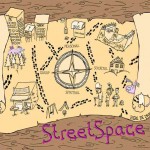I wept this morning. I cried for young people who have been have been vicitimised, marginalised and oppressed by the governments response to the recession of cutting services, I cried with the young people who will continue to be the ones who suffer most as we enter economic recovery which the government wants to promote with further cuts. The latest government proposals on young people, demonstrate a society that has lost its way, a society of selfishness, greed and power.
I wept this morning as friends responded to my post on facebook about my own situation as a NEET (not in employment, education or training) 16 year old. I left home, not willingly, not out of choice but out of necessity after my father who had been sober for 5 years started to drink again. My sister helped, the state helped, I was not stigmatized, I had time to get my head together, I had time to start to find out who I really was, out of the shadow of my father, I survived, I flourished. As I write the tears start again for the young people I met this week on the streets who do not have the same opportunity I had, I see them in my minds eye and I am simply distraught at what the future holds if current government plans continue.
Out of the shadows of my childhood, I began to explore my vocation, and pathway into youthwork. Unsurprisingly I left school with no O’levels but at 17 I was accepted to do a further education City and Guilds course in Leisure and Recreation. A course I started late because it took a while to see if I could get a grant and benefit to live and study. I moved onto to do Social Care and an A level, with a student grant and working nights in a printers and the fabulous support of my sisters family who let me live in the caravan in the garden, I began to mature and come to terms with who I was. At 19 I thought I was ready, but quickly realized I needed to go to Uni if I was going to do the youth work stuff properly, and that meant I needed more grant support. At that time automatic vocational grants (the first to go) had been cut and I remember sitting around an appeals table in County Hall in Exeter explaining my case to a panel of 15 adults, and making a simple promise to come back to the county for at least a year once graduated to help other young people.
Two years later, JNC youthwork qualification in hand, I returned to my sisters garden to live in her shed (the caravan was rusted away) and make good the promise I made in County Hall. At 21 I established my first detached youth work project in Devon, I worked part time and received housing benefit that helped make ends meet. I remember the young people I worked with 23 years ago, I remember them coming to the shed (my house) to plan how to establish a youth centre for the area, I recall the youth centre that was built on the basis of these proposals, and I still hear occasional stories from my sister about the work in the town. For those of you who know me, you will be familiar with the rest of my story, my long history with Frontier Youth Trust. My first paid post working and living on a difficult estate in the Midlands as part of YFC,(which incidentally encouraged my dad to shake my hand before I left Devon as he thought I had a proper job!) It was on this estate where I met real need first hand in my neighbors and began to learn what it means to be real community from them. Leaving to work for Worth Unlimited, with a job brief to make it work or close it down, but who now do an amazing job under a great CEO in Tim Evans in so many difficult areas across the country. Then more recently into StreetSpace who now meet over 8000 young people a month on the edge a month. I recall these stories, not to say look at me but to simply ask would the 16 year old me survive today. Asking this simple question causes the tears to return again as I know the answer would be no. Tears of gratefulness to my sister’s family and to the state without who I would not have survived. So the tears of thanks turn to a weeping that flows freely for the 1000s of young people I still hear about as youth worker, who share elements of my story, or far worse circumstances, growing up in a society that has lost its way…


